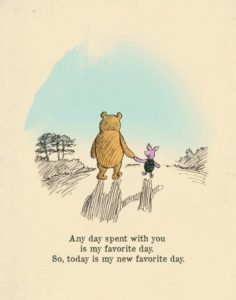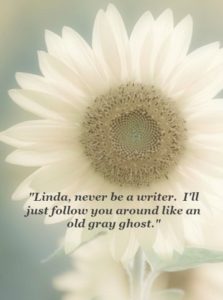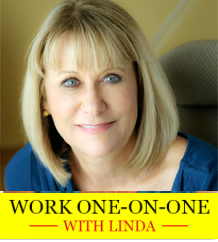Recently, I was asked to do a Q & A for another writer’s blog, and one of the questions was very thought-provoking. “If there was one person, dead or alive, that you could spend an afternoon with, who would it be and why?”
I considered my answer with care. All of my initial responses seemed to center around those who were no longer in this world, but with whom I had had a special relationship. My best friend, who died of metastatic melanoma four years ago. My father, who succumbed to emphysema and COPD in 2013. My mother’s biographer, who died of a brain tumor, and from whom I had received wise advice throughout the time we worked together. Or Nana, gone for thirty-two years now, who protected and enriched my childhood when my mother was too sick to manage.
And there was not one of my literary heroes on this list in my mind, those with whom I have no connection beyond what I read and admire: Virginia Woolf, T.S. Eliot, Mary Oliver, Ian McKuen–not even the popular Stephen King, with whom I might like to sit around on a beach, discussing how he manages to publish so many absorbing stories in such a short time. None of them, either.
Nor were there the names of those from whom I had received some kind of spiritual guidance: the old friend who is an Episcopal minister, a new friend who practices Ayurveda, my former rabbi, an acquaintance who calls himself a nihilist–not even friends who follow Judaism (the religion to which I converted before my first marriage) or Christianity (the religion in which I was raised).

My sister and husband and close friends did not make the cut, solely because I can spend time with them any day I want.
No, not any of these family, friends or icons felt right. Is my final reply to the interviewer’s question obvious to you–even though it took me quite a while to arrive at it? Perhaps the kind of answer I was seeking runs deep in the vein of the unconscious mind and simply takes time to excavate.
Yes, my mother is the one I would choose to be with for this special afternoon. We would sip sugared tea–in my writing room this time, instead of hers–and talk about our work, just as we did when I was younger. Because she committed suicide when I was twenty-one, in the October before my graduation from college, I had not yet begun to write for a living. But on this afternoon she would have read all of my nine books, and I would finally hear her opinion.
I’d like to talk about how much I have grown as a writer over the past forty-two years, and how much I owe that growth to her, because she was my first–and most important–mentor; I’d like to talk about how I always search for the perfect word and believe that revision is a vital discipline, as did she; I’d like to talk about how determined I am to follow the unconscious, wherever it may take me, when I face that blank page every morning, as did she. I would like us to meet as peers who share a private and singular love that has nothing to do with anyone else. One that has endured despite the years we have been apart.
In a letter, she once told me: “Linda, never be a writer. I’ll just follow you around like an old gray ghost.” And, of course, this prediction of hers did come true: she haunted me, in both my own eyes and in the opinion of the public as well. Raised in a generation in which children were expected to surpass their parents’ achievements, for many years I wanted to transcend hers.

Over time, however, I came to accept that some people would always call me “Anne” by mistake, or inevitably ask me, “are you Anne Sexton’s daughter?”–as if to say that both my writing and I were invisible. I came to accept that the literary fame and acclaim would always belong, for the most part, to her. In short, I’ve “gotten over” the competition I once perceived, and have come to take both pride and pleasure in my own strengths as a writer–which are, in the end, both similar to and different from hers.
I’ve also learned that it is natural to take satisfaction in the long hours required of a literary executor, as I ensure that her poetry will “live on” with readers and critics alike, despite her premature death. I hope that she appreciates all these efforts I make on her behalf, and would ask her about the decisions I’ve made for her in her absence, as well.
So, in my long-winded way, I answer the original question put to me: I’d like to spend that “special afternoon” with Mom. I’d like to say to her that I now welcome her haunting, perhaps because she has indeed become, most of all, my muse and my inspiration. I’d like to tell her how much I appreciate her impact and influence on my entire life–not only in my efforts as a writer but also in the relationships I have with others. And, finally, I’d like the chance to put my arms around my very own “old gray ghost.” And hug her once again.
Yours,
Linda
Have a comment or feedback? Talk to Linda!

